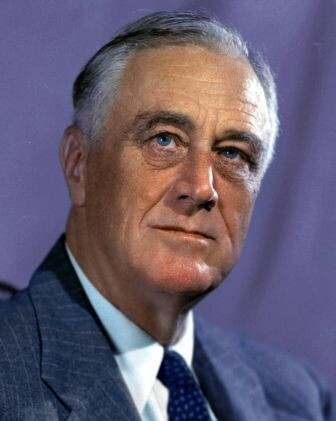U.S. State Department (November 8, 1942)
740.0011 European War 1939/25296: Telegram
The Chargé in France to the Secretary of State
Vichy, November 8, 1942.
[Received November 8 — 6:35 a.m.]
1646.
Your 685, November 7, 11 p.m.
The unenciphered message, received 7:20 a.m. from the President was delivered by me to Marshal Pétain at 9:10 a.m. this morning.
I am cabling a translation of M. Pétain’s reply immediately.
TUCK
740.0011 European War 1939/25312: Telegram
The Chargé at Tangier to the Secretary of State
Tangier, November 8, 1942 — 6 a.m.
[Received 6:45 a.m.]
559.
News of American landings in French North Africa was received in Tangier in the early hours of the morning. Up until this hour the situation is entirely normal with no more than normal circulation on the streets.
Telegraph communications continue uninterruptedly, a telegram having been received from the Legation in Lisbon at 4:33 a.m.
Repeated to Madrid.
CHILDS
740.0011 European War 1939/25319: Telegram
The Chargé in France to the Secretary of State
Vichy, November 8, 1942 — 10 a.m.
[Received November 8 — 8:04 a.m.]
1648.
Reference your [our] en clair message 1647, 8th.
The Marshal received me at 9:10 this morning. Jardel and Dr. Menetrel both members of his entourage were present. I handed the Marshal the text of the President’s unenciphered message which he already had in translation before him on his desk. He read the French translation of the message which I had prepared and then signed and handed me his already-prepared reply to the President of the United States of which the following is a close translation:
Message from Marshal Pétain to President Roosevelt.
Vichy, November 8, 1942
It is with stupor and grief that I learned during the night of the aggression of your troops against North Africa.
I have read your message. You invoke pretexts which nothing justifies. You attribute to your enemies’ intentions which have never been manifested in acts. I have always declared that we would defend our Empire if it were attacked; you knew that we would defend it against any aggressor whoever he might be. You knew that I would keep my word.
In our misfortune I had when requesting the Armistice protected our Empire and it is you who acting in the name of a country to which so many memories and ties bind us have taken such a cruel initiative.
France and her honor are at stake.
We are attacked.
We shall defend ourselves. This is the order I am giving.
PHILIPPE PÉTAIN
The Marshal said that he had told Admiral Leahy that France would resist any attack on her Empire by whomsoever and that there was no other course of action left open to him than to order measures of defense. He then showed me the text of the order which he had sent early this morning to the chief military authorities in Morocco, Algeria, Tunis and Dakar. The text of the messages to the first three places mentioned reads in translation as follows:
Am sending you under the following number the telegram from the Marshal, Chief of State, to President Roosevelt.
Your duty is clear. The Government counts on you. You should quell any tentatives of dissidence which have taken place or which may take place.
A translation of the text of the message to Governor Boisson at Dakar is as follows:
Am sending you under the following number the telegram from the Marshal, Chief of State, to President Roosevelt.
The attack on North Africa has taken place. Be ready for all emergencies. The Marshal and the Government count on you.
I informed the Marshal that I would immediately transmit the text of his reply to my Government.
As I rose to take my leave, he took both my hands in his looking at me steadfastly and smiling. He accompanied me to the antechamber and turned briskly back to his office humming a little tune.
TUCK
U.S. Navy Department (November 8, 1942)
Communiqué No. 186
South Pacific.
On November 6:
-
U.S. forces advanced eastward to the Metapono River, 4 miles east of Koli Point on Guadalcanal Island. No contact with the enemy main body in this area was made. There was no other troop activity on Guadalcanal during the day.
-
Army dive bombers made several attacks on enemy positions during the day. A large ammunition dump and a gasoline stowage were destroyed.
On November 7:
-
During the early morning our motor torpedo boats attacked two enemy destroyers off Lunga Point, north of our position on Guadalcanal. One of the destroyers is believed to have been sunk.
-
During the forenoon a small U.S. auxiliary, engaged in transporting supplies to Guadalcanal was damaged by an enemy torpedo.
-
During the morning our troops continued to advance to the eastward in the vicinity of the Metapono River.
-
During the afternoon of November 7, U.S. aircraft attacked an enemy surface force about 150 miles north of Guadalcanal. Enemy planes attempted to protect the formation which consisted of 1 light cruiser and 10 destroyers. The enemy cruiser was badly damaged and possibly sunk and 1 destroyer was badly damaged. Five float-type “Zeros” and 7 float-type biplanes were destroyed. Four of our planes failed to return.
